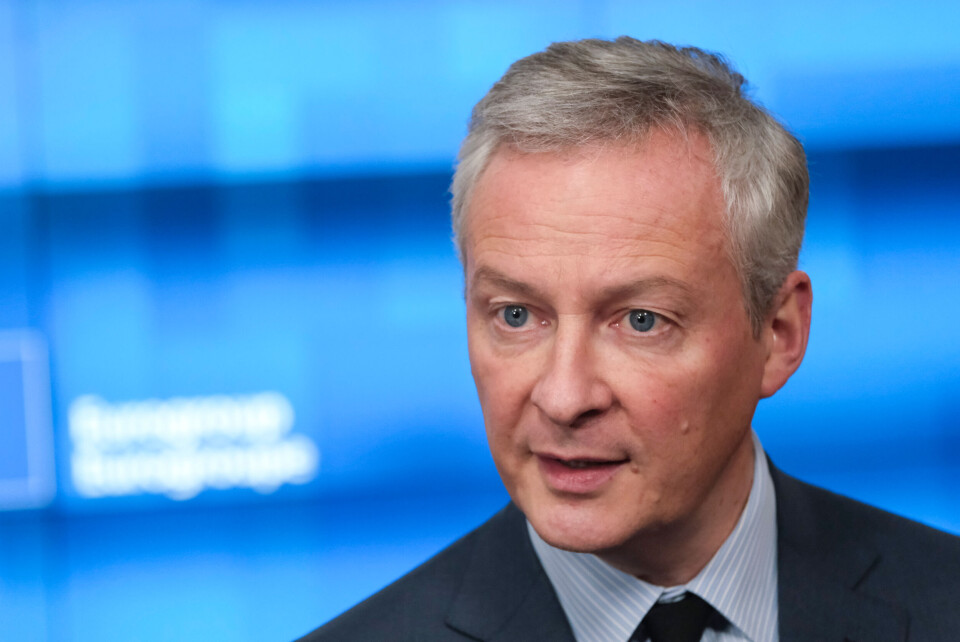-
New farmer protests this week - where and what to expect
Pressure mounts on the government over agricultural policy, disease control and trade agreements
-
Increased fire safety audits are forcing bars across France to close
Inspections follow deadly blaze in Swiss nightclub on January 1
-
Photos: widespread flooding in Brittany as warnings continue
Water levels set to rise with more rain forecast on January 26
France and Germany prepare for Russian gas cut: what will effects be?
Vladimir Putin demands the gas be paid for in roubles, Europe refuses. We look at what consequences there could be and what the government is doing about it

France is preparing for Russia to potentially cut off its supply of gas to Europe, French Finance Minister Bruno Le Maire said yesterday (March 31) during a press conference with his German counterpart.
It comes after Russian President Vladimir Putin threatened to demand the gas be paid for in Russian roubles from today, April 1. He said this was retaliation for sanctions on Russia and certain Russians’ assets being frozen by countries around the world, measures that were themselves a response to Russia invading Ukraine on February 24.
“There could be a situation in which tomorrow [meaning April 1], in very specific circumstances, there is no longer any Russian gas. It’s up to us to prepare for these scenarios and we are preparing,” Mr Le Maire said.
He said that France would not pay for the gas in roubles, saying “contracts are contracts, and contracts in euros must be paid in euros”.
Russia has not yet, as of Friday morning (April 1), cut off its gas supply to Europe.
Jetzt live: Pressekonferenz mit Bundesfinanzminister @c_lindner & seinem 🇫🇷 Amtskollegen @BrunoLeMaire https://t.co/4Gs5rrn6qG
— Bundesministerium der Finanzen (@BMF_Bund) March 31, 2022
Could France manage without Russian gas?
France relies heavily on nuclear energy, with gas only making up around 16% of its energy mix, figures from 2020 show.
However, currently, 15 of France’s 56 nuclear reactors are out of service.
It is not expected that cutting Russian gas would cause immediate issues, but there would be “very big consequences” when colder weather comes, the CEO of French utility company Engie, Catherine MacGregor, said in early March.
The stoppage would first affect energy prices, with the increase in costs reaching consumers from next winter.
“The real problem would be topping up France’s energy reserves in the spring and summer in preparation for the winter this year,” she said.
France’s reserves were 34% full at the end of February, she said. It means that if there was a short-term problem, France would manage until summer, but if the issues of supply endured, it would “be more complicated”, she said.
Gas makes up around 16% of France’s energy mix. This is compared to 27% in Germany and 41% in Italy.
It is not known precisely how much an individual’s energy bill would go up if France ended its use of Russian gas.
France’s government could also step in to either limit the increases or to provide financial support to households in need.
Russian gas accounts for around 40% of Europe’s gas imports.
The EU has said it wants to cut Russian gas by two-thirds this year and end its reliance on it completely before 2030.
What did Bruno Le Maire say about the effects?
Mr Le Maire, standing alongside Germany’s minister for Economic Affairs and Climate Action, Robert Habeck, said, “we stand ready to protect our population”.
“We have already taken, with President Emmanuel Macron, very strong decisions to protect households by freezing gas prices and capping electricity prices and by providing a rebate of 18 centimes per litre of gasoline,” Mr Le Maire said.
“The next steps will be the implementation of measures to protect private-sector companies, especially [small and medium-sized enterprises].
“We want to have a response that will [be aimed at] the private companies that have been most heavily hit by rising prices.”
The government has pledged that it will offer a refund of up to 18 centimes per litre on the price of fuel in a bid to help consumers with soaring costs.
Read more:France's fuel discount raised to 18c per litre, instead of 15c
Meanwhile, more than six million households will receive energy vouchers for 2022 in April.
This aid is intended for low-income households that spend more than 10% of their annual budget on paying their electricity, gas or fuel oil bills.
Related articles
People in France urged to reduce energy use in case of Russian cuts
Fuel, energy cheques, cold calls: 14 changes for residents in April
Regulated prices keep France's electricity cheaper than EU neighbours
























